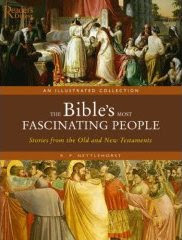When I was a young professor, freshly minted, I was talking to one of my colleagues at lunch. He had been both my professor and my advisor back during my undergraduate days. I was explaining to him about an article I had recently written and submitted to one of the premier journals in my particular field of study. He listened to me for awhile, then shook his head and told me that I had wasted my time. “There’s no sense submitting to that journal. You’re an unknown and unless you happen to know someone there, there’s no way that you’ll ever get published by them.”
Rather discouraged, I slinked back to my office anticipating what I knew would be the inevitable form rejection letter from that journal. “Of course he was right,” I told myself. “He knows these things; he’s been doing this for years. Who do I think I am?”
About two days later I received a letter from the editor of the journal. It wasn’t a rejection letter. Instead, he expressed his joy and excitement over my article and not only was it published, he moved some other articles back in the schedule so that my article could come out sooner than it otherwise would have. The article turned out to be of some significance within a narrow subspecialization of study, earning me both recognition and multiple footnotes to my article in heavy academic tomes. Some years later, it led to my nomination, and subsequent induction, into Who’s Who in America.
When I write a book, I have a very close friend who will read them for me, offering criticism and suggestions and giving me ideas. She offers me valuable and positive criticism. We all need people in our lives who can let us know when we’ve made a mistake, when we could do something better than we have, who will suggest needed change.
But then there are the other sorts of critics. Critics like my colleague. People who will explain to you in great detail why your dream is impossible and why it is a waste of everyone’s time. Doubtless we have seen such critics at work in our lives and the lives of those around us. They are the perpetual wet blankets who always discern why a given idea or course of action isn’t possible. The teacher or parent who tells a child that he will never amount to anything. The classmates who laughed when you told them you wanted to be a doctor.
These are not useful critics. These are the nay-sayers who destroy rather than create, who tear down rather than build. We need to remember that history is littered with the debris of people who said it can’t be done.
They don’t build statues for such people. No monuments are ever erected to the people who explained why it couldn’t be done. No memorials are dedicated to those who explained that the way was too hard, so why try. No days are set aside for those who pontificated on why we need to be reasonable and keep our goals limited to what we know we can do, which is precious little. We do not celebrate those who just said no. Such people lead quiet lives, they often are well respected in their day and most people listen to them.
But it is those who decided to attempt the impossible, who built the tall buildings, who crossed the seas, who righted long-standing wrongs, who acted for freedom, who went to the moon that will be remembered long after the critics are gone. It is to such people, those who don’t say no, for whom shrines are erected and history sings praise.
So don’t give up and don’t listen to those who will tell you that you should. They might be right, of course, but what are the odds? The pessimists who proclaim endless doom never seem to quite get it right. The track record of the optimists seems much better. So just say no to the naysayers. They’ve always been on the wrong side of history. Stand with those who shoot for the stars. Sooner or later they reach them.
Thursday, February 10, 2005
One of the less pleasant aspects of writing is getting rejected by a publisher. It is unavoidable, however, and one must develop a certain thickness of skin if one desires to ever be published. If one can't stand the thought of rejection, he or she would be better off taking up a career elsewhere, or else keeping everything one writes in a shoebox somewhere and never showing it to anyone.
The reality is, that not everyone is going to like what one writes. There are marketing considerations. Perhaps the editor liked what you wrote, but the marketing people can't see how the company could ever make money with it. Or perhaps they just chose to publish a book on a similar theme. Any number of issues can keep good work from getting published, or letting bad work get loose.
More than 40,000 books are published in the US every year. I'd certainly like the chance to see my books wind up in the discount bin, too. Maybe someday. In the meantime, I just collect rejections. I intend a small bonfire once I get a contract with someone...
The reality is, that not everyone is going to like what one writes. There are marketing considerations. Perhaps the editor liked what you wrote, but the marketing people can't see how the company could ever make money with it. Or perhaps they just chose to publish a book on a similar theme. Any number of issues can keep good work from getting published, or letting bad work get loose.
More than 40,000 books are published in the US every year. I'd certainly like the chance to see my books wind up in the discount bin, too. Maybe someday. In the meantime, I just collect rejections. I intend a small bonfire once I get a contract with someone...
Wednesday, February 02, 2005
Someone, whose name I can't remember just now, once wrote about being a writer. He--or she--said that one needs to be prepared to discard the first million words that one writes. Why? Because the first million words will be crap.
I began going through some boxes of papers this week from when I was in junior high and high school. I even found some things from when I was in gradeschool, like a comic strip that I had done in fourth grade.
I wrote my first novel when I was a junior in high school and by the time I had graduated I had written a total of three novels and two plays. When I graduated from college, four years later, I had written an additional nine novels. All of those things are in the box.
In addition to the novels, there are dozens and dozens of short stories and some poetry. None of these materials have ever seen the light of day and none are likely to, either. To paraphrase Paul, I consider them all refuse. Certainly there is more than a million words there (given that the average length of those novels was about 150,000 words). So, I guess have paid the entrance fee required of aspiring writers, and then some. I can hope, therefore, that most of my words since then have perhaps not been so bad.
I began going through some boxes of papers this week from when I was in junior high and high school. I even found some things from when I was in gradeschool, like a comic strip that I had done in fourth grade.
I wrote my first novel when I was a junior in high school and by the time I had graduated I had written a total of three novels and two plays. When I graduated from college, four years later, I had written an additional nine novels. All of those things are in the box.
In addition to the novels, there are dozens and dozens of short stories and some poetry. None of these materials have ever seen the light of day and none are likely to, either. To paraphrase Paul, I consider them all refuse. Certainly there is more than a million words there (given that the average length of those novels was about 150,000 words). So, I guess have paid the entrance fee required of aspiring writers, and then some. I can hope, therefore, that most of my words since then have perhaps not been so bad.
Subscribe to:
Posts (Atom)





